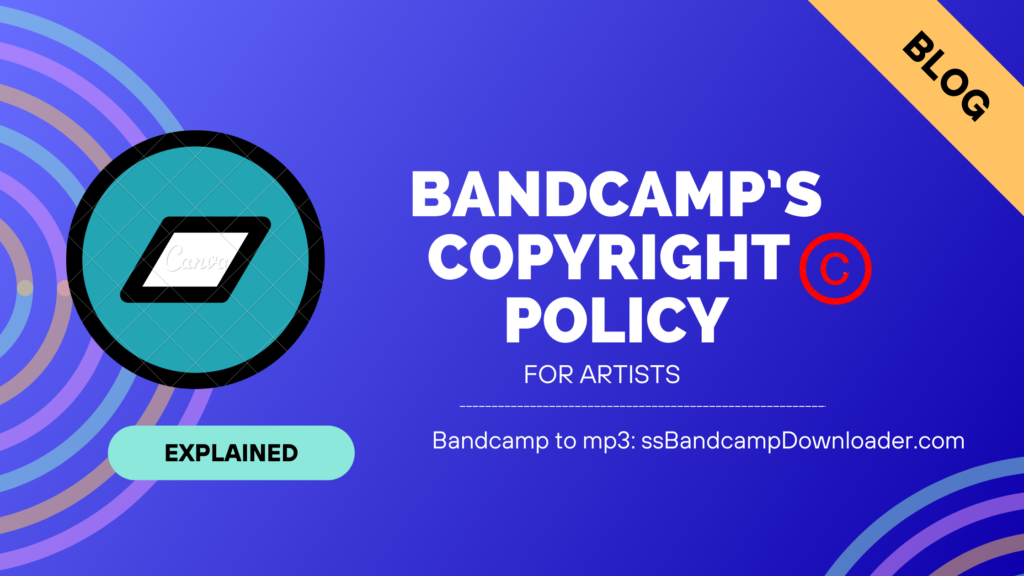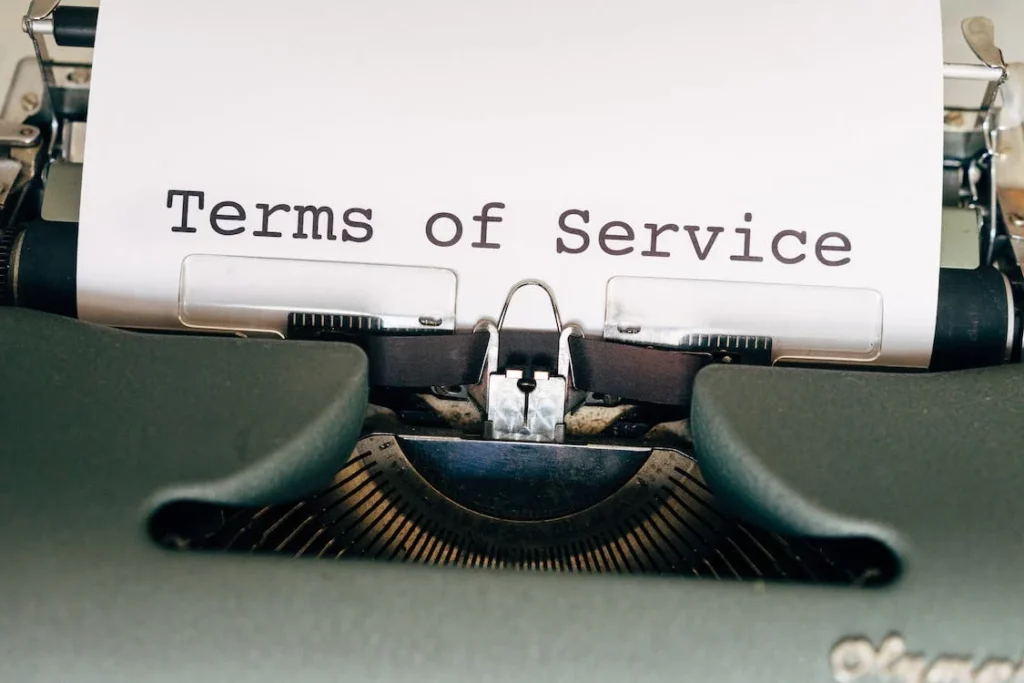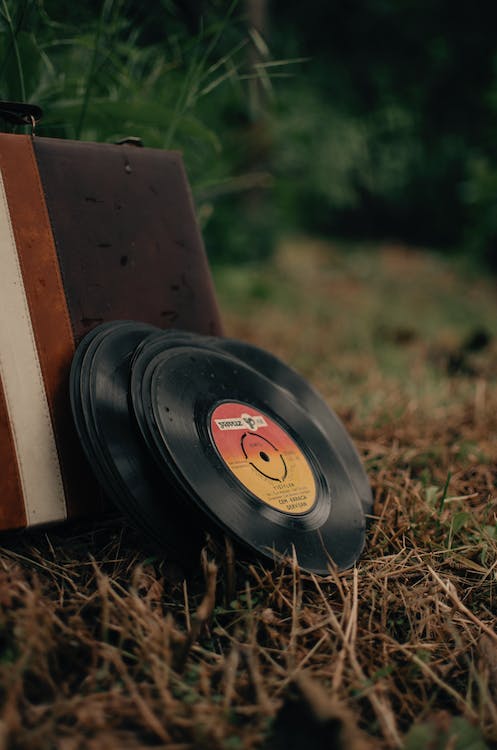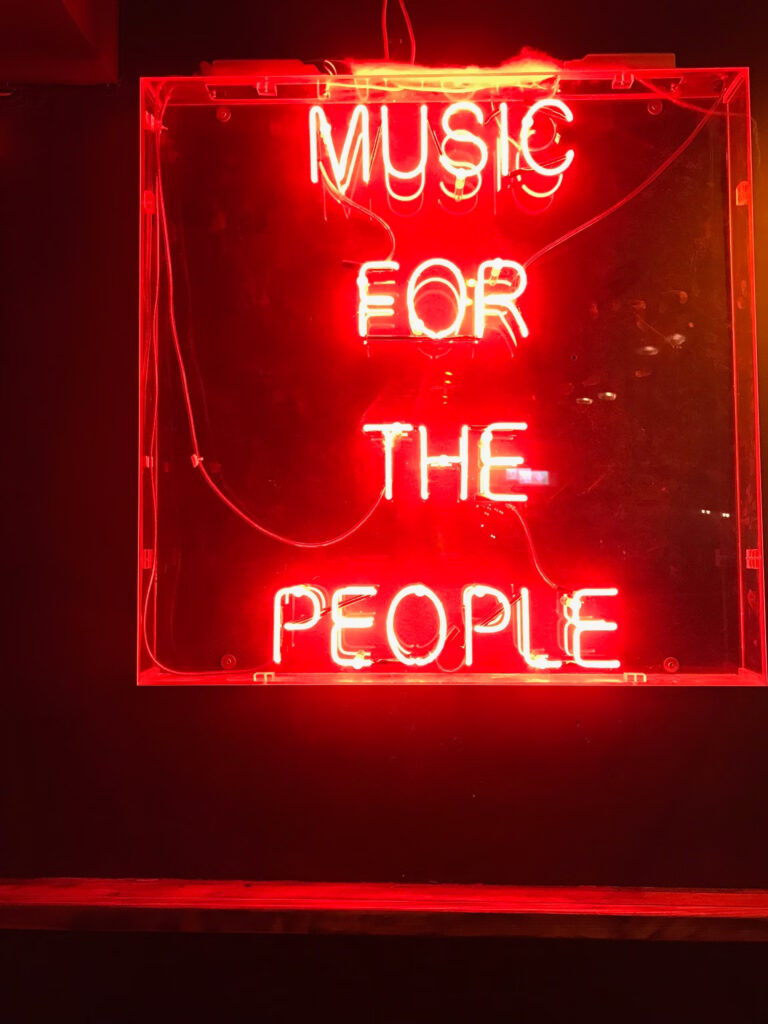In the realm of independent music distribution, Bandcamp stands as a beacon for artists seeking to share their creations with the world. However, with the ever-evolving landscape of digital media, questions often arise regarding the safeguarding of artists’ intellectual property.
One such query that frequently surfaces is whether Bandcamp, the beloved platform for musicians, exerts any form of copyright over the music uploaded by its users. In this exploration, we embark on a concise journey to uncover the truth behind this query.
By delving into Bandcamp’s terms of service, copyright principles, and real-world experiences of musicians, we aim to shed light on whether, and to what extent, Bandcamp asserts copyright claims over the melodies and rhythms of its diverse user base.

Understanding Copyright
Copyright is a foundational concept in the music industry, and comprehending it is vital for every musician. At its core, copyright is a legal protection that grants the creator of an original work exclusive rights to its use and distribution.
This means that when you create a piece of music, you automatically have the copyright to it. This copyright encompasses several crucial aspects:
- Exclusive Rights: Copyright gives you exclusive control over your music. You can decide who can use, reproduce, distribute, and make derivative works from your creations.
- Duration: Copyright protection lasts for a specific duration, which has evolved over the years. Currently, in many countries, it lasts for the life of the creator plus 70 years. After this period, the work typically enters the public domain.
- Registration: While copyright is automatic upon creation, registering your work with a copyright office can provide additional legal benefits, such as the ability to sue for statutory damages in case of infringement.
- Fair Use: Copyright law also includes provisions for “fair use,” allowing limited use of copyrighted material without permission for purposes like commentary, criticism, or education.
- Public Domain: Works that are no longer under copyright protection are considered part of the public domain. Anybody can use them freely without restrictions.
Understanding these fundamental principles of copyright is crucial because they form the basis for how your music is protected and how you can grant others permission to use it. In the context of Bandcamp and its policies regarding copyright, this understanding is a valuable foundation for the discussion to come.
Bandcamp’s Terms of Service

To navigate the question of whether Bandcamp copyrights your music, it’s essential to start by examining the platform’s terms of service. Bandcamp, like any online service, operates under a set of rules and guidelines that users must adhere to.
These terms govern how your music is handled on the platform, and they can provide insights into the issue of copyright ownership.
1. Accepting the Terms: When you sign up for a Bandcamp account and use its services, you are implicitly agreeing to their terms of service. This agreement forms a contractual relationship between you and Bandcamp.
2. User-Created Content: Bandcamp’s terms typically address the rights and responsibilities of users concerning the content they upload. It’s common for these terms to clarify that users retain ownership of the content they upload to the platform.
3. Licensing and Distribution: Bandcamp often outlines how it handles the licensing and distribution of music. It may specify that you grant the platform the right to distribute your music to buyers or stream it to listeners, but this is usually for the purpose of facilitating sales and streaming, not for claiming copyright ownership.
4. Non-Exclusive: The terms generally assert that the agreements you make with Bandcamp are non-exclusive. This means you can distribute your music elsewhere and maintain control over it outside the Bandcamp platform.
5. Reporting Copyright Violations: Bandcamp may provide information on how to report copyright violations by other users. This is part of their effort to uphold copyright law and respect the rights of content creators.
Also See: Downloading mp3 albums from Bandcamp.com
By exploring Bandcamp’s terms of service, you can gain clarity on the platform’s stance regarding copyright. Generally, these terms are here to protect your rights as a musician while enabling the platform to provide its services effectively.
However, the specifics may vary, so it’s essential to read and understand the terms that apply to your use of Bandcamp to ensure you have a clear picture of how your music is treated on the platform. This understanding forms the basis for evaluating any potential copyright concerns on Bandcamp.
Licensing and Distribution
Licensing and distribution are central to how music is shared and heard on platforms like Bandcamp. To understand how Bandcamp handles these aspects and whether it affects the copyright of your music, it’s crucial to delve into this topic.
1. Licensing Your Music: When you upload music to Bandcamp, you’re essentially granting the platform the right to distribute and sell your music on your behalf.
This is not a transfer of copyright ownership; instead, it’s a licensing arrangement. You retain the copyright, but you allow Bandcamp to act as your distributor.
2. Distribution to Buyers: Bandcamp’s primary function is to facilitate sales to buyers. When someone purchases your music on Bandcamp, they obtain a license to listen to it privately. This license doesn’t grant them copyright ownership or the right to redistribute your music.
3. Streaming to Listeners: Bandcamp also allows listeners to stream your music. This is akin to a public performance, but it’s typically limited to short previews. Again, this doesn’t transfer copyright but enables potential buyers to explore your music before making a purchase.
4. Control Over Pricing: One advantage of Bandcamp is that it often allows artists to set their prices and terms for licensing and distribution. This means you have control over how your music is sold and how much you earn from it.
5. Non-Exclusive Arrangement: Importantly, Bandcamp’s licensing and distribution agreements are non-exclusive. You’re not bound to use Bandcamp exclusively for selling or distributing your music. This flexibility enables you to explore other platforms while maintaining control over your work.
In essence, Bandcamp’s approach to licensing and distribution is designed to empower musicians. It provides a platform where artists can sell their music directly to fans without surrendering copyright ownership. While Bandcamp plays a crucial role in facilitating sales and streaming, it does not assert copyright ownership over your music. Understanding this distinction is pivotal in clarifying how Bandcamp treats your music in terms of copyright, reaffirming your rights as a music creator.
Copyright Protection on Bandcamp
When it comes to understanding how Bandcamp protects copyright, it’s important to explore the measures the platform takes to ensure that the intellectual property of musicians is respected.
1. DMCA Compliance: Bandcamp operates in compliance with the Digital Millennium Copyright Act (DMCA), a U.S. copyright law.
This means that if someone believes their copyright is being infringed upon on the platform, they can submit a DMCA takedown notice to have the content removed promptly. Bandcamp takes such notices seriously and follows the legal requirements for addressing copyright complaints.
2. Reporting Copyright Violations: Bandcamp typically provides clear mechanisms for reporting copyright violations. Musicians who believe their work is being used without authorization can report the infringement to Bandcamp, who will investigate and take appropriate action.
3. Protecting Original Creations: Bandcamp emphasizes the importance of respecting copyright and originality in its community guidelines. They encourage artists to upload only content they have the right to distribute and discourage plagiarism or unauthorized use of copyrighted materials.
4. Transparency: Bandcamp aims to maintain transparency in its copyright policies. They often provide information and resources to help users understand copyright law and how it applies to their music on the platform.
5. Promoting Fair Use: While protecting copyright is crucial, Bandcamp also recognizes the concept of fair use, which allows for limited use of copyrighted material for purposes like commentary, criticism, or education. This balance between copyright protection and fair use is a critical aspect of Bandcamp’s approach.
Overall, Bandcamp takes measures to protect the copyright of musicians while fostering a creative and collaborative community. The platform’s compliance with DMCA regulations, reporting mechanisms, and emphasis on originality work together to create an environment where copyright is respected, and artists can share their work confidently. Understanding these measures reinforces the assurance that Bandcamp does not claim copyright over your music but instead strives to uphold your rights as a content creator.
Ownership of Original Music
One of the central concerns for musicians on Bandcamp is the ownership of their original music. To clarify this aspect, let’s delve into how Bandcamp typically handles the ownership of original music.

1. Retaining Copyright: The fundamental principle on Bandcamp is that you, as the creator, retain copyright ownership of your original music.
This means that when you upload your music to the platform, you still have the exclusive rights to control how it’s used, distributed, and monetized.
2. Non-Transferable Rights: Bandcamp’s terms of service generally state that you grant the platform certain rights for the purpose of distributing and promoting your music.
However, these rights are non-exclusive and non-transferable. This means you’re not giving away your copyright; you’re simply allowing Bandcamp to assist in distributing your music.
3. Freedom to Sell Elsewhere: Importantly, Bandcamp’s ownership policies do not restrict you from selling your music through other platforms or channels. You have the flexibility to explore multiple distribution avenues while maintaining full control over your music’s copyright.
4. Licensing for Distribution: When users purchase your music on Bandcamp, they obtain a license to listen to it privately or in some cases, use it in their projects. This license does not grant them ownership of your music; it’s a permission to use it under specific terms.
5. Public Domain and Copyright Expiry: Bandcamp respects the concept of public domain and copyright expiration. If your music falls into the public domain due to the expiry of copyright protection, it can be freely used by anyone.
In essence, Bandcamp’s approach reinforces the ownership rights of musicians over their original music. The platform provides a means to showcase and sell your work to a global audience while ensuring that you, as the artist, maintain control over your creative output.
This understanding of ownership on Bandcamp reaffirms that the platform does not assert copyright claims over your original music but rather respects and empowers your rights as a content creator.
Cover Songs and Copyright
Cover songs can be a popular choice for musicians on Bandcamp, but it’s essential to understand the copyright implications associated with them.
1. Copyright Ownership of Original Song: When you cover a song, you are essentially creating a new version of someone else’s original composition. The copyright to the original song remains with the original songwriter or their publisher. You do not own the copyright to the original song.
2. Mechanical Licenses: To legally release a cover song, you typically need a mechanical license. This license grants you the right to reproduce and distribute the song. Obtaining a mechanical license is essential to ensure you have the legal authority to release your cover on platforms like Bandcamp.

3. Compulsory Licenses: In some countries, there are compulsory licensing provisions that allow you to record and distribute a cover song without seeking direct permission from the copyright owner. However, you are still required to follow specific regulations and pay royalties.
4. Platforms like Bandcamp: Bandcamp typically expects musicians to adhere to copyright laws and obtain the necessary licenses for cover songs. The platform may have mechanisms to check for compliance and may remove content that violates copyright.
5. Rights Holders and Royalties: When you release a cover song on Bandcamp, the platform may distribute royalties to the original copyright holder through a process known as mechanical royalty collection. This ensures that the original songwriter gets the credit due for the use of their work.
In summary, covering songs on Bandcamp can be a creative endeavor, but it involves navigating copyright laws and obtaining the required licenses. Bandcamp generally expects users to comply with copyright regulations when it comes to cover songs to respect the rights of original songwriters. Understanding these copyright considerations is essential for musicians who wish to share their cover versions on the platform while adhering to legal and ethical standards.
User Experiences
To gain a comprehensive perspective on how Bandcamp handles copyright, it’s valuable to consider the real-life experiences of musicians who have used the platform. These firsthand accounts shed light on how copyright is managed in practice.
1. Independent Artists’ Testimonials: Many independent musicians have shared their experiences using Bandcamp. They often emphasize the platform’s commitment to respecting their copyright and ownership of original music. These testimonials underscore that Bandcamp empowers artists to maintain control over their work.
2. Reporting Copyright Issues: Musicians who have encountered copyright issues on Bandcamp often share their experiences online. They describe the platform’s responsiveness to copyright violation reports, highlighting the effectiveness of Bandcamp’s mechanisms for addressing such concerns.
3. Flexibility in Licensing: Users frequently discuss Bandcamp’s flexibility in allowing them to set their terms for licensing and distribution. This flexibility enables artists to experiment with different pricing models and distribution strategies while safeguarding their copyright.
4. Encouragement of Originality: Many musicians appreciate Bandcamp’s community guidelines, which encourage originality and discourage the unauthorized use of copyrighted materials. These guidelines foster an environment where people respect copyright.
5. Collaboration with Fans: Some artists share stories of collaboration with their fans on Bandcamp. They often describe the platform as a space where fans can support their work directly. It emphasizes the importance of respecting copyright in these interactions.
Through these user experiences, it becomes evident that Bandcamp is generally perceived as a platform that values the copyright and creative control of musicians.
The testimonials and accounts of artists highlight Bandcamp’s role in supporting independent creators while upholding copyright principles. These real-life examples affirm the platform’s commitment to empowering artists in their music distribution journey while respecting their rights as content creators.
Conclusion
In conclusion, the examination of Bandcamp’s copyright practices reveals a platform that respects and upholds the rights of musicians.
Bandcamp does not assert copyright claims over original music uploaded by artists; instead, it functions as a tool to help creators distribute and monetize their work while maintaining control.
Through its adherence to copyright laws, DMCA compliance, and commitment to addressing violations, Bandcamp creates an environment where artists can showcase their talents confidently. User testimonials and experiences underscore the platform’s dedication to empowering independent musicians.
In essence, Bandcamp’s approach reinforces the notion that artists retain their copyright and creative autonomy while benefiting from a supportive and artist-friendly distribution platform.
FAQs
No, Bandcamp does not claim copyright over your music. When you upload your original music to Bandcamp, you retain full copyright ownership. Bandcamp serves as a distribution platform to help you share and monetize your work while respecting your creative control.
You can upload cover songs to Bandcamp, but it’s crucial to obtain the necessary licenses, such as mechanical licenses, to legally release them. Copyright laws regarding cover songs may vary by location, so ensure you follow the relevant regulations and permissions.
Bandcamp operates in compliance with the Digital Millennium Copyright Act (DMCA) and provides mechanisms for reporting copyright violations. If someone infringes on your copyright, you can report it, and Bandcamp will take appropriate action, such as removing the infringing content.
Yes, Bandcamp’s agreements are typically non-exclusive, meaning you can sell your music on Bandcamp while also distributing it through other platforms. This allows you to reach a broader audience while retaining copyright control.
Yes, Bandcamp provides resources and guidelines to help musicians understand copyright and licensing. Their community guidelines encourage originality and respect for copyright principles, ensuring a supportive and legally compliant environment for creators.
